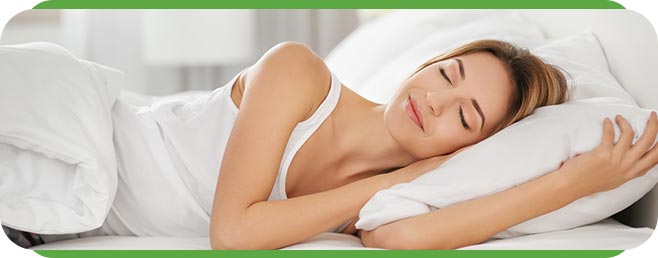How to Get Better Sleep?
There are all sorts of ways to get a better night’s sleep. If you are struggling with getting shut eye, then treatments are available today. Contact our team at Koala® Center For Sleep & TMJ Disorders or visit us online to book an appointment. We have convenient locations across the U.S. in Bloomington IL, Peoria/Dunlap IL,El Paso TX, and Wausau WI.


Table of Contents:
Why is my sleep so poor?
How can I sleep better naturally?
What are the tips to improve sleep?
How do I fix poor sleep?
Poor sleep can be caused by a variety of factors, including medical conditions, such as sleep apnea or insomnia and even nighttime seizures as the result of epilepsy. Lifestyle choices play a big role as well. Choices such as excessive alcohol consumption or caffeine intake during the day, or a high sugar content diet, can all interfere too. Conditions such as restless leg syndrome (RLS) and chronic pain can also cause a disruption with your sleep cycles, making it difficult to fall and stay asleep, preventing proper sleep cycles throughout the night.
Sleeping better naturally is achievable and can be done by making some lifestyle changes, some big and some small. A great starting point is to begin with a regular and consistent sleeping schedule that you maintain even on weekends and holidays.
Pay attention to caffeine and sugar intake, decide for yourself how much is too much but typically it is recommended that the average adult consume no more than 400 milligrams, or the equivalent of about four cups of coffee per day. Therefore, if you’re a coffee lover, grab some decaffeinated brew instead of the regular.
Blue light has a negative effect on a tired body too, so get away from ‘daytime’ toned lightbulbs in exchange for a ‘soft glow’; this applies to TV and computer screens as well. Reducing stimulation before bed works great too, so avoid loud noises busy atmospheres and any high energy activities such as strenuous workouts, though never forget that a good stretch before sleep can work wonders.
If these strategies do not improve your sleep, it’s important to consult with a healthcare professional to rule out any underlying sleep disorders such as sleep apnea or insomnia. The goal is to promote healthy sleep habits and improve sleep quality naturally for long-term benefits to overall health and well-being.
Improving sleep quality can have numerous benefits for physical and mental health as well as an overall sense of well-being. Maintaining a consistent sleep cycle even on the weekends is important. Getting a minimum of at least 7 hours is a great place to start.
Creating a relaxing environment is useful, using things such as aromatherapy, yoga, deep breathing and meditation exercises are a definite way to improve sleep quality. Making certain lifestyle changes can be great too, such as removing unnecessary stressors and triggers from life when and where possible. Additionally, reducing caffeine and alcohol intake throughout the day, especially at night, have shown excellent results for getting better sleep. Eating a healthier and more balanced diet and getting more exercise and fresh air helps do the trick too on the sleeping front.
Fixing poor sleep quality, in many cases isn’t as hard as you think. Try by starting simple and not stressing yourself too much over the issue as stress is the leading cause of poor sleep quality in our overly stimulated world. Removal of excessive sugar and caffeine intake during your day and maintaining a consistent sleep schedule is important as it helps regulate your body’s natural sleep-wake cycle.
Engaging in relaxing activities, such as reading, meditation and yoga, stretching and deep breathing techniques before bed, also helps to address the problem. People who are experiencing poor sleep quality should also avoid excessive alcohol consumption close to bedtime as well as any sugary drinks, teas or cleanses. When it comes to screens, remove the blue tint in the screen by setting it to ‘nighttime mode’ when using it and if possible, get away from screens altogether an hour before bed.
Koala® Center For Sleep & TMJ Disorders offers treatments for better sleep.

Additional Services You May Need
▸ KoalaKIDZzz®
▸ Sleep Apnea
▸ Snoring
▸ TMJ Disorder
▸ Fatigue
▸ Sleep Disorders
▸ Weight Loss
▸ CPAP Alternative
▸ Oral Appliances




